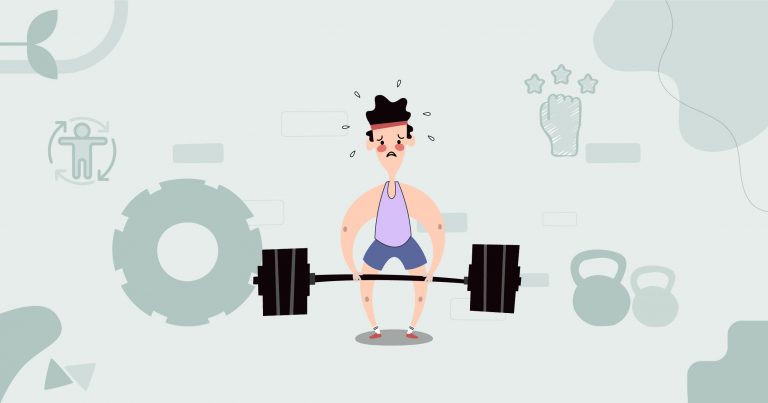Exercise Trends Over The Years
Let’s talk about the irresistible pull of the quick fix. In our fast-paced world, it’s all too tempting to latch onto the latest health and fitness craze. Picture this: detox teas promising to shave inches off your waistline by Friday, or boot camp workouts claiming you’ll look like a million bucks after just a few sessions. Sounds great, doesn’t it? And so many of us bite, lured by the promise of instant results and less effort.
But what’s the catch? More often than not, these overnight wonders aren’t as miraculous as they claim. When the initial excitement wears off, many find themselves not just back where they started but potentially worse off. Maybe it’s a nagging injury from those “transformative” workouts or a hit to metabolic health from extreme dietary fads. It’s the classic tortoise versus hare scenario, where the allure of speed doesn’t quite lead to the finish line.
This constant push and pull between the seductive promise of instant results and the solid, reliable outcomes of a well-thought-out fitness plan really puts our judgment to the test. It urges us to look beyond the hype and evaluate what truly works—not just for a moment, but for life. So, the next time a flashy new fitness trend catches your eye, pause and think: Is it just a quick fix? Remember, genuine health is about laying down a foundation of sustainable habits, not just exploiting loopholes for temporary gains.
How to Choose Wisely What Works and What Doesn’t
Have you ever wondered why we get such a thrill from diving into the latest fitness fad? It’s all down to our brains craving novelty. When we encounter a new workout regime or diet trend, particularly one that’s buzzing on social media, our brain’s reward circuits get all fired up, releasing dopamine, a neurotransmitter that’s all about pleasure and reward. This makes checking out that new spin class or sampling the latest superfood not just interesting but genuinely exciting.
But hold up, there’s even more going on here. The influence of celebrities or fitness influencers endorsing these trends amps up their appeal exponentially. When we see our favorite stars or fitness gurus promoting a new plan, it triggers our brain’s mirror neurons, systems in our brain that help us emulate and learn from others. This not only builds a bridge of trust but also kindles our aspirations, nudging us closer to hitting that signup button.
And let’s not forget the mesmerizing power of transformation stories. Those compelling before-and-after snapshots aren’t just inspiring—they’re meticulously designed to ignite our deepest wishes for quick and dramatic results. This potent narrative taps into our psychological drive for immediate gratification, overshadowing the importance of gradual and sustained improvement.
So, when the next shiny new fitness program catches your eye, pause for a second. Ask yourself: Is the allure based on its trendiness or its real value to your long-term health? Remember, while the initial excitement of novelty is a fantastic motivator, the lasting value of a fitness choice should always be its ability to sustain and enhance your health far beyond the initial buzz.
Subscribe to newsletter
Get your Gut Health Starter Guide right now.
Elevate your Tuesdays with practical, science-backed wisdom propelling you forward on your gut health journey.

Building Sustainable Fitness Habits
- Educate Yourself: Before jumping on the latest fitness trend, research its principles, the science behind it, and read unbiased reviews. Knowledge is power when it comes to distinguishing between fads and genuinely effective workouts.
- Set Realistic Goals: Instead of aiming for quick fixes, set achievable, long-term health goals. Consult with fitness and health professionals to create a balanced routine that suits your body’s needs.
- Focus on Holistic Health: Incorporate a variety of physical activities that improve not only your physical fitness but also your mental health. Activities like yoga, pilates, and meditation can complement more intense workouts.
- Listen to Your Body: Pay attention to how your body responds to a new fitness regimen. Discomfort is normal, but pain or extreme fatigue may indicate that the activity is not suitable for you.
- Track Your Progress: Use a journal or an app to monitor your fitness journey. Keeping a record helps maintain motivation and provides a realistic view of your progress and areas for improvement.
A Transformational Testimonial of a Fitness Fad
Alex, a 35-year-old office worker whose fitness journey tells a tale of enlightenment beyond the flashy fads. “At first, I was drawn to the instant results promised by everything from juice cleanses to one-month extreme fitness challenges. And sure, I’d lose a few pounds and feel invigorated, but the success was fleeting,” Alex admits.
Disheartened by the temporary highs and inevitable lows of fitness trends, Alex decided to pivot towards a more consistent and tailored approach. He teamed up with a personal trainer who designed a regimen that was anything but one-size-fits-all—combining balanced nutrition with a mix of cardio, strength, and flexibility training that suited his specific needs. “It lacked the glamor of the fads, but it was crafted just for me, and it felt right,” Alex explains.
The results of this shift were gradual but deeply transformative. Over the months, not only did Alex’s physique improve, but he also experienced boosts in energy and overall mental well-being. “The progress was slow and required patience, something I had to learn along the way, but it was authentic and sustainable,” he reflects.
Today, Alex stands as a testament to the power of ditching the allure of quick fixes for a more measured, personalized fitness strategy. “I’ve maintained my fitness, I’m stronger than ever, and I’ve finally escaped the cycle of temporary fixes,” he shares proudly.


















